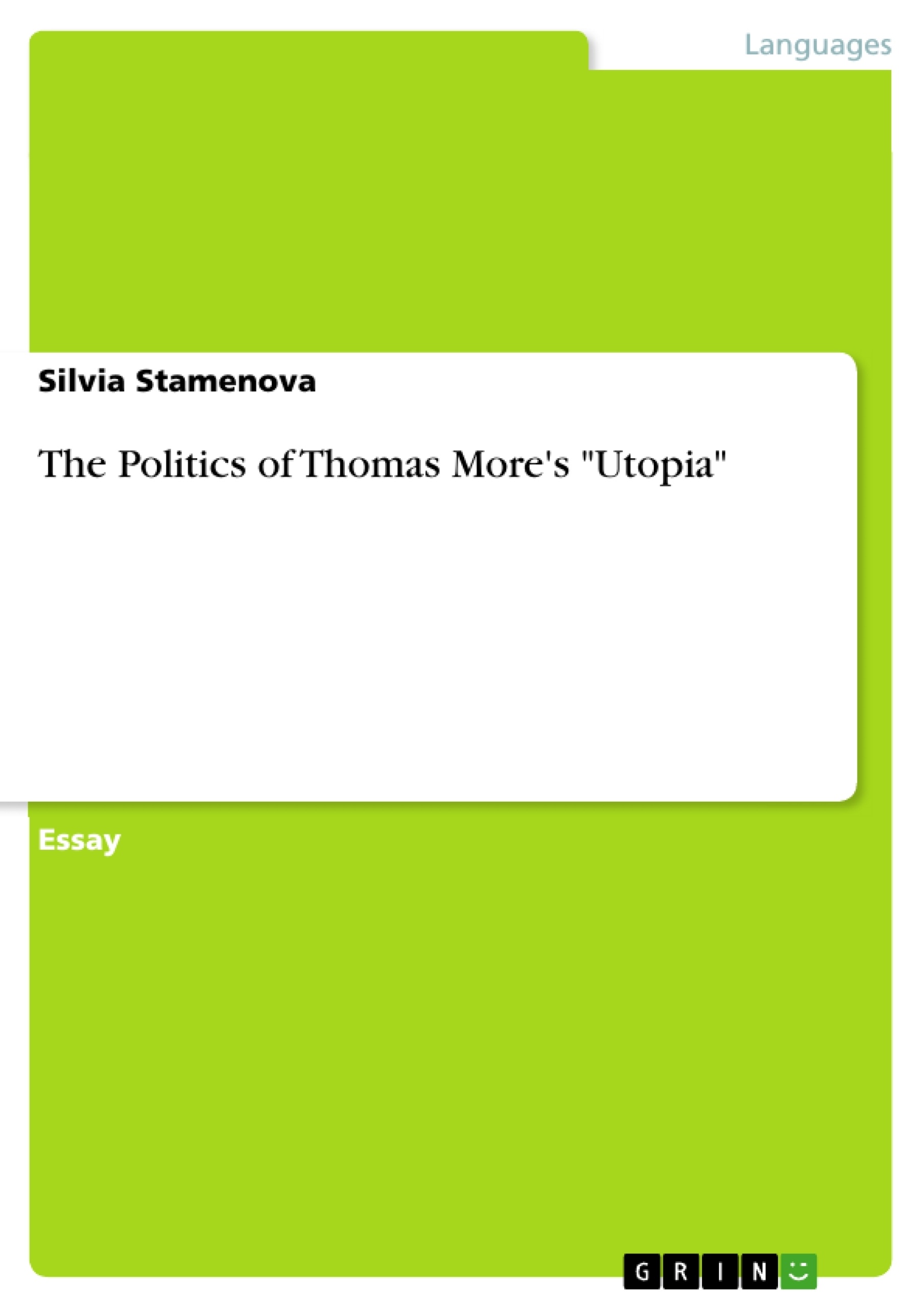The question posed in this essay concerns the politics in the book of Thomas More's Utopia. The book is a precursor of the utopian literary genre that describes in detail ideal societies and perfectly arranged cities. Although utopianism is a typical Renaissance movement, which combines classical concepts of ideal societies of Plato and Aristotle with Romanesque rhetorical finesse (Cicero, Kvintiliyan), it continues to develop in the age of the Enlightenment as well.
Moreover, the author criticizes the social mores of his time. To today’s system he opposes the island “Utopia” where there is no private property. Earth and all means of production belong to the state, which is a federation of cities. All people are busy with work. From physical labor are exempt only those persons possessing exceptional mental ability and dealing with scientific work. Thus, the essay has a lot to say and a lot to deal with – from politics to pure utopia.
Inhaltsverzeichnis (Table of Contents)
- Introduction
- Research question
- Politics in Thomas More's Utopia
Zielsetzung und Themenschwerpunkte (Objectives and Key Themes)
This essay investigates the political aspects of Thomas More's Utopia, a seminal work of utopian literature. It analyzes how More's vision of an ideal society, characterized by communal ownership and a focus on public good, challenges the social and political norms of his time.
- The influence of classical and Renaissance ideals on More's conception of Utopia.
- The critique of social injustice and inequality in More's contemporary society.
- The impact of Utopia on socialist and humanist thought throughout history.
- The various interpretations and controversies surrounding Utopia's political system.
- The relationship between Utopia's political structure and its social, economic, and religious values.
Zusammenfassung der Kapitel (Chapter Summaries)
Introduction
This introduction establishes the research question, which focuses on the politics present in Thomas More's Utopia. It highlights the book's significance as a precursor to the utopian literary genre and discusses its influence on subsequent social and political movements.
Research question
This section briefly elaborates on the context of More's Utopia, emphasizing its historical relevance within the late medieval period and its critique of the existing social order. It also notes the book's lasting impact on socialist thought.
Politics in Thomas More's Utopia
This chapter delves into the political system described in Utopia. It explores the structure of government, the role of the people in decision-making, and the absence of private property. The chapter also examines the concept of slavery in Utopia and various interpretations of its purpose within the context of the ideal state.
Schlüsselwörter (Keywords)
The primary focus of this text is on the political and social aspects of Thomas More's Utopia. Key terms include: utopian literature, social critique, communal ownership, political system, ideal society, social justice, inequality, socialist thought, interpretations and controversies, classical ideals, Renaissance ideals, and the relationship between politics and social values.
Frequently Asked Questions
What is the political system in Thomas More's "Utopia"?
Utopia is depicted as a federation of cities without private property, where the state owns all means of production.
Does "Utopia" influence socialist thought?
Yes, More's critique of social injustice and his vision of communal ownership are seen as precursors to modern socialist and humanist ideas.
Who is exempt from physical labor in Utopia?
Only persons with exceptional mental abilities who are dedicated to scientific work are exempt from manual labor.
What was More's critique of his contemporary society?
He used the fictional island to criticize the social mores, inequality, and greed of late medieval and Renaissance Europe.
Is there slavery in More's Utopia?
Yes, the political structure includes a system of slavery, which remains a subject of controversy and varying interpretations among scholars.
- Citation du texte
- Silvia Stamenova (Auteur), 2016, The Politics of Thomas More's "Utopia", Munich, GRIN Verlag, https://www.grin.com/document/387035



